Meet The Speakers
Simone Sanna-Cherchi, M.D.

Dr. Simone Sanna-Cherchi is an Associate Professor of Medicine in the Division of Nephrology at Columbia University Irving Medical Center in New York, United States. He performs groundbreaking research on genetic kidney diseases, such as congenital abnormalities of the kidneys and urinary tract and nephrotic syndrome; his discoveries resulted in publications in scientific journals such as the New England Journal of Medicine, Science, Nature Genetics, Nature Communications, the Journal of Clinical Investigation, the Journal of the American Society of Human Genetics, the Journal of the American Society of Nephrology, Kidney International, and many others.
Dr. Sanna-Cherchi is renowned for his ability and experience in leading large multi-institutional and international studies that bring together investigators with different background, interest, and nationality to solve the genetic basis of difficult, clinically relevant, and often neglected, diseases. His work has been continuously supported by funding from multiple agencies including the National Institute of Health (NIH), the Department of Defense (DoD), the American Society of Nephrology (ASN), the American Heart Association (AHA), the American Urology Association (AUA) and many others. Among his many honors and functions, he is an elected member of the American Society of Clinical Investigation (ASCI), a founding member of the International Society of Glomerular Disease (ISGD), and he is an Associate Editor for the Journal of the American Society of Nephrology (JASN) and an Associate Editor for Glomerular Diseases (GDZ).
Lab Website
X Account
Alessia Fornoni, M.D. Ph.D.

Dr. Alessia Fornoni is a Professor of Medicine, Molecular and Cellular Pharmacology, and Biochemistry at the University of Miami Miller School of Medicine. She serves as the Director and Chair of the Peggy and Harold Katz Drug Discovery Center. Dr. Fornoni gained experience in drug development at Hoffmann-La Roche in Basel and is the founding scientist of several start-up companies. Her research is supported by grants from the NIH, industry, and private foundations.
She has received numerous prestigious awards, including membership in the American Society of Clinical Investigation (ASCI, 2017), the Association of American Physicians (AAP, 2021), and the Florida Academy of Science, Engineering, and Medicine (ASEMFL, 2023). Dr. Fornoni serves on the editorial boards of the Journal of Clinical Investigation and Kidney International and was the Deputy Editor of JASN in 2024. She has been appointed as the newest At-Large Councilor for the ASN Council, beginning January 2025.
A recipient of multiple mentorship awards, her trainees hold leadership roles in various academic institutions worldwide. As Co-Director of the MD/PhD MSTP program, the CTSI K12 program, and Director of an NIH-funded summer school in Nephrology, Dr. Fornoni demonstrates a strong commitment to mentoring students and junior faculty toward successful academic careers.
Through her pioneering work on insulin signaling, cholesterol metabolism, and sphingolipid-related pathways, Dr. Fornoni has uncovered novel pathogenetic mechanisms and therapeutic approaches for glomerular disorders, which have successfully progressed to ongoing clinical trials.
Lab Website
X Account
Donald W. Landry, M.D. Ph.D.

Donald W. Landry, M.D., Ph.D., is the Hamilton Southworth Professor of Medicine, the Chair Emeritus of the Department of Medicine at Columbia University, the founding director of the Division of Experimental Therapeutics, and the Director of the Center for Human Longevity at Columbia University. He completed his Ph.D. in Organic Chemistry with Nobel laureate R.B. Woodward at Harvard University, obtained the M.D. degree from Columbia University, completed Residency in Internal Medicine at the Massachusetts General Hospital/Harvard Medical School, and then returned to Columbia for training as an NIH Physician-Scientist, and has remained as a member of the Columbia faculty. He is the founder of Tonix Pharmaceuticals, a member of the Board of Directors of Sensient Technologies, and Chair of the scientific advisory board of Applied Therapeutics, Inc. He is also co-founder of Tegrigen Therapeutics.
He is an elected member of the American Society for Clinical Investigation (ASCI) and the Association of American Physicians (AAP). He was also a member of the (U.S.) President's Council on Bioethics and is President of the American Academy of Sciences and Letters. In 2015, he was inducted at the Smithsonian as an elected Fellow of the National Academy of Inventors. He received the Presidential Citizens Medal, the nation's second-highest civilian honor, from President George W. Bush at the Oval Office in 2008 "for diverse and pioneering research and his efforts to improve the well-being of his fellow man."
Website
Moin Saleem, M.D. Ph.D.
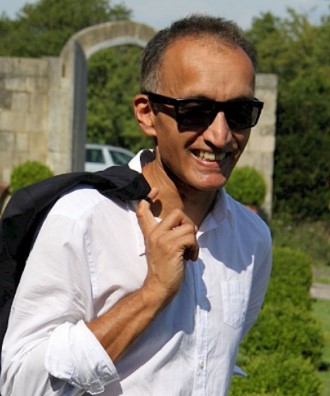
Dr. Moin A. Saleem, M.D, Ph.D, is a Professor and Consultant Paediatric Nephrologist at Bristol Children’s Hospital, where he also serves as the Director of Bristol Renal. He leads a multidisciplinary research group of approximately 45 researchers focused on glomerular disease, including podocyte biology and nephrotic syndromes. With a PhD in transplantation immunology and extensive clinical training, he has established an international reputation for his work, particularly in developing the first human podocyte cell line, which has become a vital tool in kidney research. Additionally, he is the Founder and Chief Scientific Officer of Purespring Therapeutics, a pioneering company in renal gene therapy.
As a prominent physician-scientist, Dr. Saleem's research is well-supported by multiple grants, including significant projects from the Medical Research Council. He is the originator of the UK Renal Rare Disease Registry and is currently leading the UK nephrotic syndrome study (NephroS) and the NURTuRE initiative, promoting industry-academic collaborations. His innovative gene therapy program, focusing on podocyte-targeted treatments, represents a groundbreaking advancement in renal therapeutics. Dr. Saleem's work has garnered multiple accolades, including the Royal College of Physicians Fellowship and the prestigious MRC Project Grant. He has published extensively in high-impact journals such as Nature Medicine, Journal of Clinical Investigation, and Journal of the American Society of Nephrology, significantly shaping the landscape of kidney disease research.
Website
X Account
Rasheed Gbadegesin, M.D.

Dr. Rasheed A. Gbadegesin, M.D., is a Wilburt C. Davison Distinguished Professor of Pediatrics at Duke University, where he serves as both a Professor of Medicine and Associate Dean for Physician-Scientist Development. He leads a dynamic research program focused on understanding the molecular pathogenesis of nephrotic syndrome (NS) and identifying novel, non-toxic therapeutic targets for this prevalent kidney disease. His laboratory has made significant contributions over the past fifteen years, including the identification of novel single-gene causes of NS and various risk loci, alongside groundbreaking work on genotype-phenotype correlations. Dr. Gbadegesin's commitment to mentorship is reflected in his roles as the director of the Physician Scientist Training Program and co-director of the Clinical and Translational Science Award KL2 program.
Recognized for his scholarly excellence, Dr. Gbadegesin has published over 100 peer-reviewed research articles and serves on the editorial boards of several journals such as Kidney International. He is a Fellow of the American Society of Nephrology (FASN) and has received numerous awards for his contributions to the field. As Co-Chair of the Kidney Week Committee, he plays a pivotal role in shaping nephrology research and education. His research is supported by multiple prestigious grants, including those from the NIH, which enable him to advance our understanding of kidney disease and improve outcomes for affected children.
Website
X Account
Priya Verghese, M.D., M.P.H.

Priya Verghese, M.D., M.P.H., is a pediatric nephrologist serving as the Division Head of Nephrology at Ann & Robert H. Lurie Children’s Hospital of Chicago and Interim Medical Director of the Pediatric Kidney Transplant Program. She holds the Isaac A. Abt, MD Professorship in Kidney Diseases and is a Professor of Pediatrics at Northwestern University Feinberg School of Medicine. Her research is nationally funded and published in high-impact journals, and she is frequently invited to share her expertise at international conferences. In addition, she is a dedicated patient advocate, actively involved with organizations such as the American Society of Pediatric Nephrology, the American Society of Transplantation, and the United Network of Organ Sharing.
Throughout her career, Dr. Verghese has received numerous honors, including the Investiture of Isaac A. Abt, MD Professor of Kidney Diseases (2023), Outstanding Teacher Pins from Northwestern University (2021, 2022), and the Department of Pediatrics Excellence Award for Leadership (2021). She is recognized as a Fellow of the American Society of Transplantation and has been listed among Best Doctors in America and Leading Physicians of the World. In her editorial roles, she contributes as an Associate Editor for Frontiers in Pediatrics and as an Editor for Pediatric Transplantation and the Journal of Pediatric Infectious Disease.
Website
X Account
Opeyemi Olabisi, M.D., Ph.D.

Opeyemi A. Olabisi, M.D., Ph.D., is an Associate Professor of Medicine at Duke School of Medicine and a member of the Duke Molecular Physiology Institute. He specializes in adult nephrology and is dedicated to advancing our understanding of APOL1 nephropathy through innovative research. His work utilizes patient-derived stem cell models to explore the underlying mechanisms of this condition, aiming to develop targeted therapies. Dr. Olabisi has been recognized for his contributions to the field with several prestigious awards, including the NIH Director’s New Innovator Award and the Duke Whitehead Scholars Award. He received his MD-PhD from Albert Einstein College of Medicine, followed by residency training in internal medicine and nephrology fellowship at Massachusetts General Hospital, along with a postdoctoral research fellowship at Harvard Medical School.
Dr. Olabisi's research is supported by R01 grant from the NIMHD. His impactful work and dedication to mentorship have established him as a rising star in nephrology, further evidenced by accolades such as the Albert Einstein College of Medicine Alumni’s Rising Star – Scientific Investigator Award. Dr. Olabisi has published extensively in high-impact journals, including JAMA, American Journal of Kidney Diseases, and Kidney International, contributing significantly to our understanding of kidney diseases.
Website
X Account
Debbie Gipson, M.D.

Debbie Gipson, M.D., is a pediatric nephrologist and Program Director at the NIH's Division of Kidney, Urologic, & Hematologic Diseases, where she oversees research programs focused on chronic kidney disease, kidney inflammation, and pediatric kidney disease. Dr. Gipson directs efforts to design, analyze, and interpret clinical trials and translational research aimed at improving outcomes for children and adults with kidney diseases. Her extensive background includes serving as a Professor of Pediatrics in the Division of Nephrology at the University of Michigan School of Medicine from 2009 to 2023.
Dr. Gipson's research emphasizes the mechanisms underlying kidney disease progression, including studies on natural history, target identification, biomarker development, and clinical trials.
Website
Nada Alachkar, M.D., Associate Professor of Medicine, Johns Hopkins University of Medicine

Dr. Nada Alachkar is an associate professor of medicine at the Johns Hopkins University School of Medicine. Her areas of clinical expertise include incompatible kidney transplants, kidney transplants, nephrology and pancreas transplants. Dr. Alachkar earned her M.D. at Aleppo University Faculty of Medicine in Syria. She completed residencies at Aleppo University and Wright State University School of Medicine. She performed clinical fellowship in nephrology and transplant nephrology fellowship at Johns Hopkins University. Her research interests include recurrent glomerular diseases post kidney transplantation; in particular recurrent FSGS post transplant. Also, she is studying biomarkers in kidney transplants; outcome of living and deceased donor kidney transplant recipients with positive crossmatch; and responses to desensitization treatments and post-transplant outcome in highly sensitized patients. Dr. Alachkar is a member of the American Society of Nephrology and the American Society of Transplantation.
Confirmed Moderators
Patricia L. Weng, M.D., Associate Professor of Pediatrics – Nephrology; Medical Director, Pediatric Kidney Transplant Program University of California, Los Angeles (UCLA).

In addition to her clinical responsibilities as a pediatric nephrologist, Dr. Weng is interested in research involving the genetics of pediatric kidney disease and improving pediatric kidney transplant outcomes.
Website
Matthew G. Sampson, M.D., M.S.C.E., Warren E. Grupe Chair of Pediatric Nephrology at Boston Children’s Hospital; Associate Professor of Pediatrics, Harvard Medical School; Associate Member of the Broad Institute and member of the Kidney Disease Initiative; Research Faculty at the Brigham and Women’s Hospital Nephrology Division.

Dr. Sampson is a nephrologist at Boston Children’s Hospital and director of the Sampson Lab. His aim is to improve outcomes for children with nephrotic syndrome by applying modern genomics to advance precision medicine and inform causes, prognoses, and treatments.
Website
X Account
Eloise Salmon, M.D., Assistant Professor of Pediatrics-Nephrology, University of Michigan, Department of Pediatrics.

Dr. Salmon is a pediatric nephrologist at University of Michigan. Her research interests span from resource utilization in the three long-term renal replacement therapies - kidney transplant, hemodialysis, and peritoneal dialysis - to phenotyping of recurrent diseases post-transplant.
X Account
Ibrahim Batal, M.D., Associate Professor of Pathology & Cell Biology, Columbia University Irving Medical Center (CUIMC).
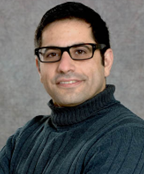
Dr. Batal is the Kidney and Transplant pathologist referent for the evaluation of kidney allograft biopsies at CUIMC. His R01-NIDDK funded research focuses on immune and inherited factors predicting glomerulonephritis in kidney allografts.
Website
Sumit Mohan, M.D., Professor of Medicine and Epidemiology, Columbia University Medical Center (CUMC), Medical director of Columbia’s kidney transplant program.

Dr. Mohan is a transplant nephrologist, director of Columbia’s kidney transplant program, and leads the Columbia University Renal Epidemiology (CURE) Group. His research focuses on kidney transplant outcomes, including discard rates and performance benchmarks at transplant centers.
Website
X Account
Laura Mariani, M.D., Associate Professor in the Division of Nephrology at the University of Michigan

Dr. Mariani is a nephrologist and clinical researcher at the University of Michigan. She is involved in several clinical and translational NIH-funded research studies in kidney diseases, including the Nephrotic Syndrome Study Network (NEPTUNE), the Cure Glomerulonephropathy (CureGN) Consortium, and the Kidney Precision Medicine Program (KPMP) Central Hub.
X Account
Astrid Weins, M.D., Ph.D., Assistant Professor of Pathology at Harvard Medical School.
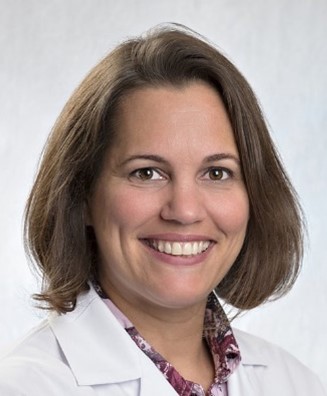
Dr. Weins is the Chief of Renal Pathology at Mass General Brigham in Boston, MA, overseeing diagnostic renal pathology services at both Brigham and Women’s and Mass General Hospital. She is also directing an active NIH-funded translational research program at Harvard Medical School. Her lab studies the pathogenesis of acute Nephrotic Syndrome, focusing on podocyte injury in Minimal Change Disease (MCD) and primary and recurrent focal and segmental glomerulosclerosis (FSGS). Her team recently discovered the presence of nephrin autoantibodies as a causative factor in diffuse podocytopathies.
Website
X Account
Josh Tarnoff, CEO, NephCure

Josh Tarnoff joined NephCure as CEO in early 2018, fulfilling a long-held desire to more closely serve the rare disease patient community. He spent 34 years ein the pharmaceutical and biotechnology community, moving new therapies closer to reality. Josh led a few companies in the latter half of his career including a clinical phase company studying nephrotic syndrome. He now enjoys his time engaging with various rare kidney disease stakeholders including patient organizations, clincians, regulators, researchers, and industry sponsors on key porgrams to help advance cures for rare kidney diseases.
Personal connections with NephCure families fuels his passion to achieve NephCure’s high-impact driven goals, and he always appreciates directly speaking with our community. Josh also has personal insights into chronic renal disease as he was once a patient, likely a result of a snake bite. He lives in Pennsylvania, where he enjoys backpacking — while also trying to avoid further contact with venomous snakes.
Paul C. Grimm, M.D., Medical Director, Pediatric Kidney Transplant Program, Stanford University School of Medicine and Stanford Children’s Health

Professor of Pediatrics and Medical Director of the Stanford Children’s Health Pediatric Kidney Transplant Program at Stanford University School of Medicine. After initial practice as a family physician in Saskatchewan, Canada, he trained in pediatrics at Dalhousie University (Halifax) and University of Manitoba in Canada. Initial Pediatric Nephrology training was at Dalhousie University, then pediatric transplantation at UCLA under the excellent mentorship of Dr. Robert Ettenger. He was faculty at University of Manitoba (1991-1999), University of California at San Diego (1999-2007) and now at Stanford since 2007. His previous research was on transplant immunology and renal pathology and image analysis. His focus is now clinical pediatric kidney transplantation; especially tolerance, the problems of infants, highly sensitized recipients, multiorgan transplants, cystinosis and patients with unusual transplant problems. Use of a combination of novel immunosuppression including stem cell transplantation to prevent recurrent disease in kidney transplant recipients and creat drug free kidney transplant immunosuppression is focus of his clinical research. He has published ~100 articles in scientific journals. He is Associate Program Director for the Stanford Pediatric Nephrology Fellowship Program and member of the Scientific Council of the Cystinosis Research Foundation.
Namrata Gargee Jain, M.D., Hackensack Meridian Health

Dr. Namrata Jain is a board-certified Pediatrician, Pediatric Nephrologist, and Medical Director of Pediatric Kidney Transplantation at Hackensack Meridian Health/Hackensack University Medical Center in New Jersey. She is responsible for expanding community and academic partnerships, pediatric renal transplant program growth, and has presented work on clinical complications of renal transplantation at local and national meetings. Dr. Jain obtained her MD from New York Medical College and trained in Pediatrics at Children’s Memorial Hospital/Northwestern, followed by a fellowship in Pediatric Nephrology at Boston Children’s Hospital/Harvard Medical School. She served as medical director of pediatric kidney transplant at Columbia University Medical Center in NYC prior to her transition to work in NJ. She is passionate about getting kids with recurrent FSGS into remission. She is currently on the Pediatric Committee for the OPTN, co-chair of the transplant working group for the Pediatric Nephrology Research Consortium (PNRC), a designated Nephcure Glomerular Specialist, and also serves as a member of Make-a-Wish America's Metro NY's Medical Advisory Council.
George W. Burke III, M.D., Professor of Surgery, The Joshua Miller MD Chair in Transplant Surgery
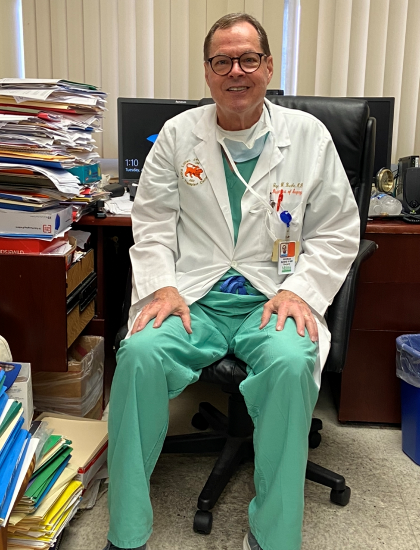
I am a transplant surgeon with a special interest in recurrence of disease after kidney or kidney-pancreas transplantation. Along with Dr. Alberto Pugliese, we have been involved in studying recurrence of auto-immunity in those patients with type 1 diabetes (T1D) and end stage renal disease who underwent a kidney-pancreas transplant in the past. Our intention is to address the diagnosis and prediction of recurrent autoimmunity, a significant clinical problem, and to gain insight into the relationship between autoimmune humoral responses, cellular responses and disease progression in the transplanted allograft through biopsy. The pancreas transplant population provides a unique opportunity to conduct such studies, which are not feasible in TID patients who do not have a transplant. Our ultimate goal is to contribute to the possible treatment and cure of TlD through the application of therapy to T1DR. Our other major interest is the treatment of children with focal segmental glomerulosclerosis (FSGS) and the problematic recurrence of proteinuria after kidney transplant. Our group initiated a protocol utilizing one dose of rituximab in addition to the standard induction immunosuppression protocol for pediatric patients with FSGS in order to mitigate against the recurrence of proteinuria after kidney transplantation. Serum was collected pre and post-transplant. Biopsies were performed pre and post reperfusion, looking for early changes consistent with podocyte foot process dysregulation. This led to our collaboration with Dr.Alessia Fornoni who demonstrated the favorable effect of rituximab clinically was associated with rituximab binding a novel target (SMPDL3B, a sphingomyelinase) on the podocyte membrane. This work has led to further work in which we used abatacept as rescue therapy for patients with recurrent proteinuria after kidney transplant for FSGS in the context of podocyte B7-l expression. Our collaborative work has the potential to shed light on the function of the podocyte, including its role in innate immunity, following transplantation, which may translate into the treatment of primary disease. These two areas of research represent robust examples of "bedside to bench and back again'' translational research.
Kimberly J. Reidy, M.D., Chief, Division of Pediatric Nephrology, Associate Professor at Children’s Hospital at Montefiore (CHAM) and Montefiore Einstein.
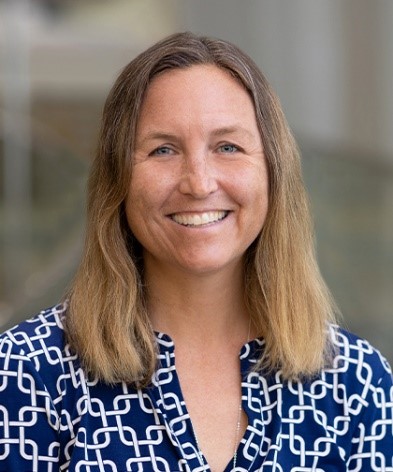
Dr. Reidy has a special interest in pediatric glomerular disease and genetic kidney disease. After earning her Bachelor of Arts in chemistry at Princeton University in 1997, Dr. Reidy attended Albert Einstein College of Medicine, earning her Doctor of Medicine in 2002. She then pursued a three-year National Institutes of Health (NIH) T32 supported fellowship in pediatric nephrology at CHAM, completing it in 2008. Her translational research focuses on the effect of APOL1 risk variants on preeclampsia and perinatal outcomes. Her bench research focuses on effects of developmental genes on kidney repair and fibrosis after injury. She has shared her work through many peer-reviewed journals, invited presentations, book chapters and abstracts. Dr. Reidy is also an ad hoc reviewer for many journals including Pediatric Nephrology, Kidney International and the Journal of the American Society of Nephrology. Dr. Reidy is board-certified in pediatrics and pediatric nephrology. She is an active member of several professional organizations including the American Society of Pediatric Nephrology, the American Academy of Pediatrics (AAP) and the Neonatal Kidney Collaborative.